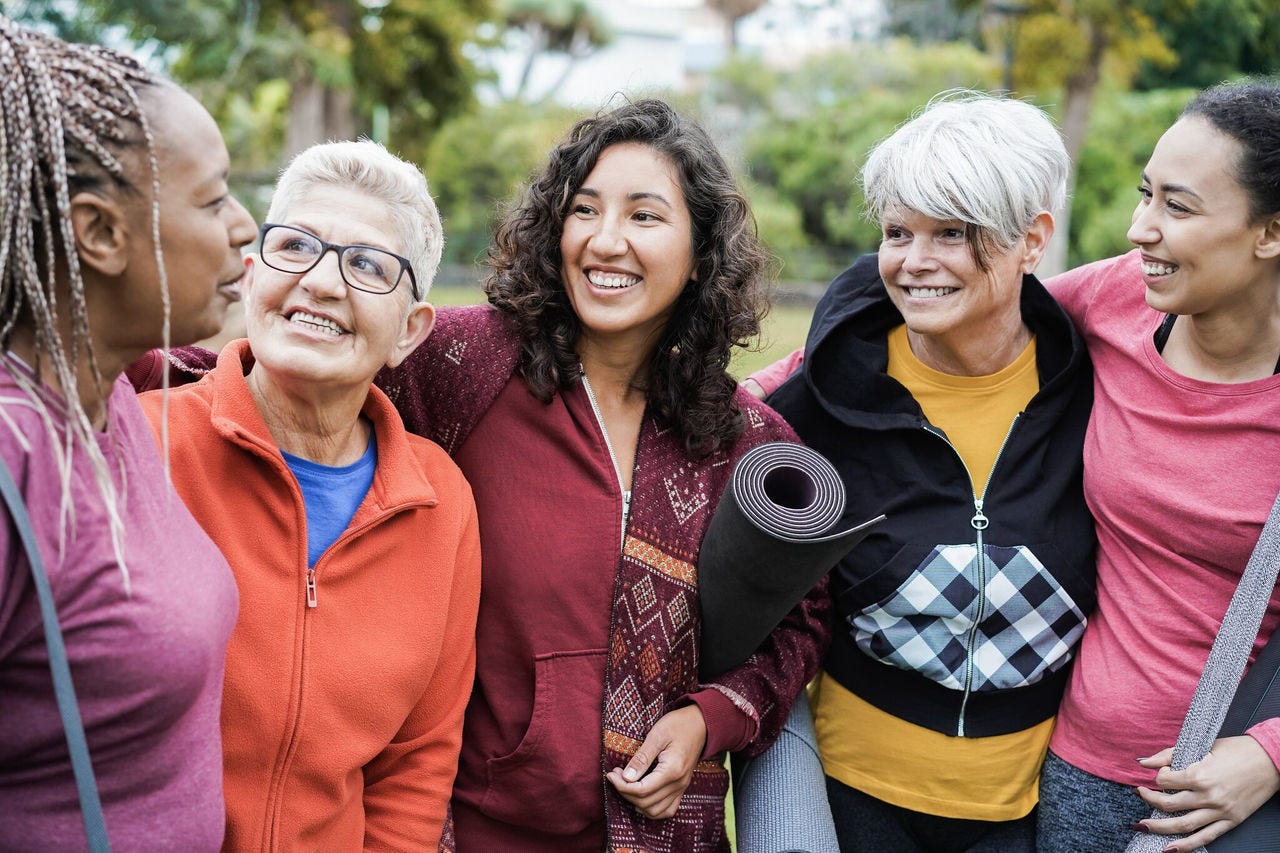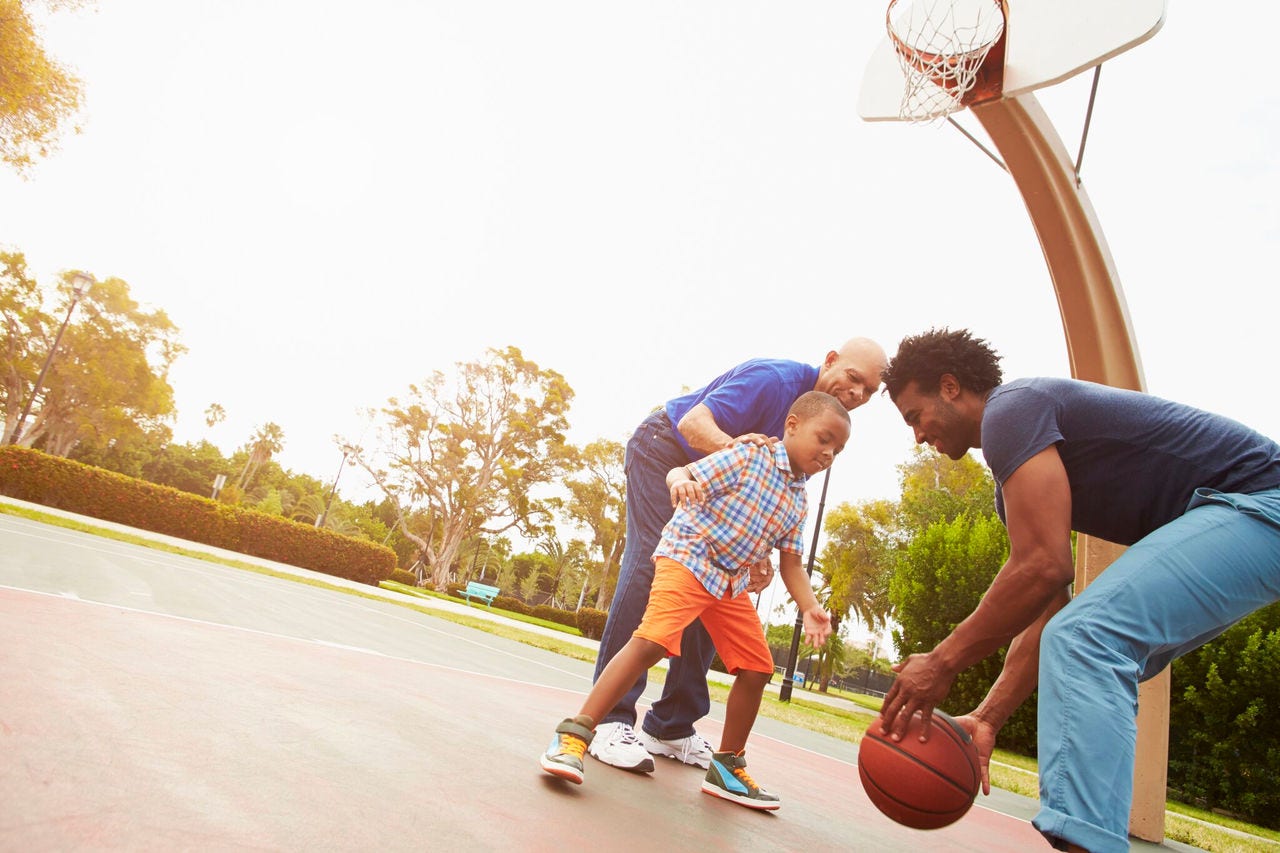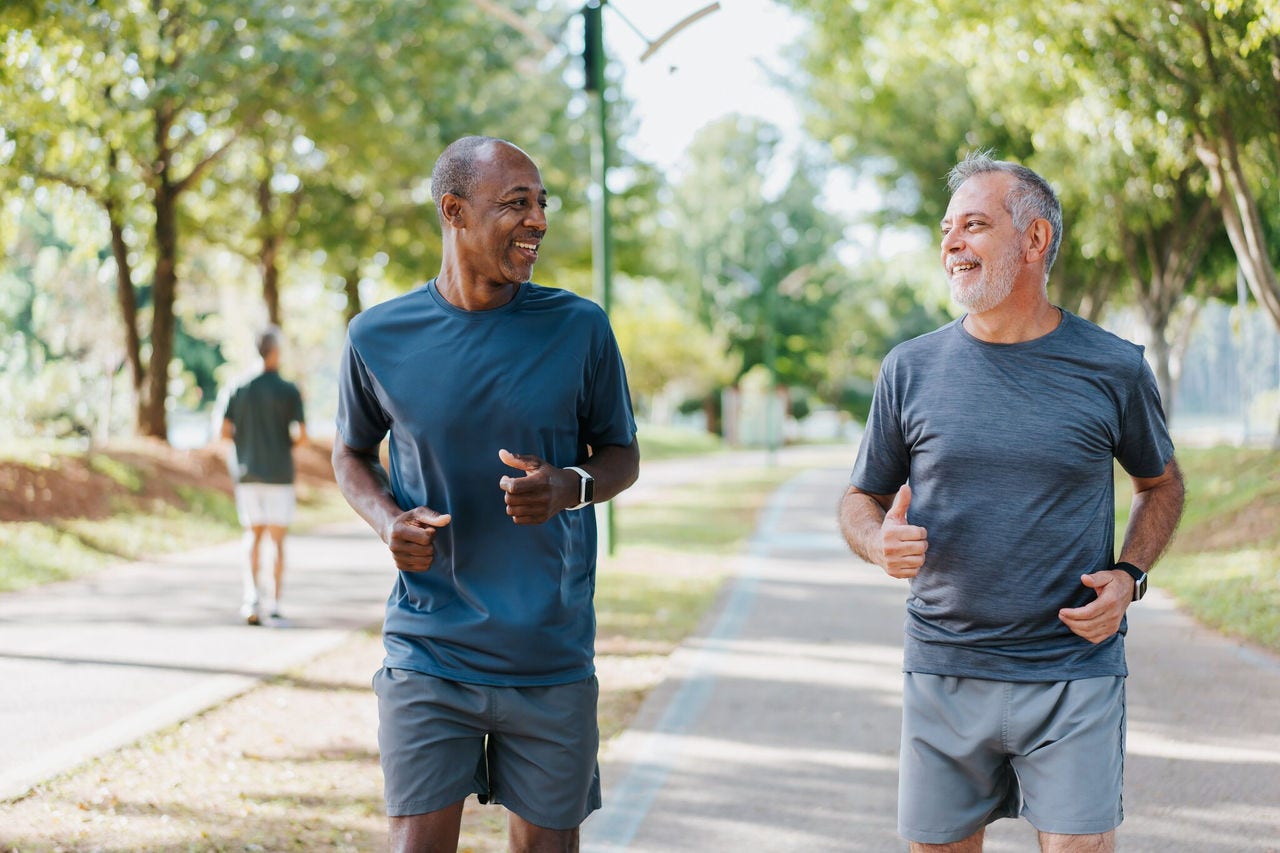Get Active, Stay Active, Stay Healthy
Staying active is one of the best ways to improve your health, boost your energy, and raise your mood. Regular physical activity helps your body feel stronger and has long-term positive effects on your health.
Even if you’re new to exercise, there are plenty of ways to get active and build fitness into your daily life.

Why is physical activity important for your health?
Physical activity has many health benefits.
It could help you live longer and may lower your risk for certain cancers. It strengthens your muscles and bones, prevents weight gain, and helps you maintain your weight. It also lowers your risk of Type 2 diabetes, heart disease and stroke, and illnesses like the flu, pneumonia, and COVID-19.
Beyond these benefits, regular physical activity also raises your mood and helps manage anxiety and depression.
Tips for getting started
- Set simple goals, like “I will walk 3 times a week.”
- Plan to build fitness into your daily life. Even small movements make a difference.
- Do what feels fun. If you enjoy it, keep at it.
- Set a reminder and repeat. Block out time on your calendar, put an alarm on your phone, or tape a note where you’ll see it every day.
Keeping kids active

The American Cancer Society recommends kids get at least 1 hour of moderate or vigorous-intensity activity each day. Most young people don’t get this amount of activity. This puts them at risk of developing diabetes, cancer, and heart disease.
To help your children get and stay active
Look for everyday chances to get kids moving.
- Try a quick game of hide-and-seek or a pickup basketball game.
- Children build habits early in life, and you can help give them a healthy start.
- Seek out physical activities that are age-appropriate, fun, and varied.
Create healthy routines.
- Limit screen time at home (TV, video games, computers, phones).
- Talk to your children about the value of physical activity.
- Create new routines, like taking a walk after dinner or playing in a park on weekends.
Make it a group effort.
- Plan physical activities for family events like birthday parties, picnics, and vacations.
- Encourage your kids to participate in school and community sports programs.
- Ask your child’s health care provider to encourage and explain the benefits of physical activity during their next checkup.
- Be a good role model and join in the fun.
As your kids get older, it can become harder to find time to be active together. Post a list reminding the family of activities you can enjoy together like hiking, biking, gardening, skating, and swimming.
How schools can get involved
To help kids reach these activity goals, it’s important for schools to provide daily physical education programs and activity breaks.
More health and fitness resources
- Written by
- References

The American Cancer Society medical and editorial content team
Our team is made up of doctors and oncology certified nurses with deep knowledge of cancer care as well as editors and translators with extensive experience in medical writing.
American College of Sports Medicine. 2025. Physical activity guidelines. Accessed at https://acsm.org/education-resources/trending-topics-resources/physical-activity-guidelines/ on September 26, 2025.
Center of Disease Control. 2024. Benefits of physical exercise. Accessed at https://www.cdc.gov/physical-activity-basics/benefits/index.html on September 30, 2025.
Center of Disease Control. 2024. Steps for getting started with physical activity. Accessed at https://www.cdc.gov/healthy-weight-growth/physical-activity/getting-started.html on August 13, 2025.
He A, Pu, Y, Jia, C, Wu M, He H, Xia Y. The Influence of Exercise on Cancer Risk, the Tumor Microenvironment and the Treatment of Cancer. Sports Med 54, 1371–1397 (2024). Accessed at https://doi.org/10.1007/s40279-024-02031-2 on September 15, 2025.
Physical Activity and Cancer Fact Sheet - National Cancer Institute. www.cancer.gov. Published February 18, 2020. Accessed at https://www.cancer.gov/about-cancer/causes-prevention/risk/obesity/physical-activity-fact-sheet#how-might-physical-activity-be-linked-to-reduced-risks-of-cancer on September 15, 2025.
Paluch AE, Boyer WR, Franklin BA, Laddu D, Lobelo F, Lee DC, McDermott MM, Swift DL, Webel AR, Lane A. Resistance exercise training in individuals with and without cardiovascular disease: 2023 update: a scientific statement from the American Heart Association. Circulation. 2024 Jan 16;149(3):e217-31. https://doi.org/10.1161/CIR.00000000000011
Rock CL, Thomson C, Gansler T, Gapstur SM, Gapstur SM, McCullough ML, Patel AV, et al. American Cancer Society guideline for diet and physical activity for cancer prevention. CA: A Cancer Journal for Clinicians. 2020;70(4). Accessed at https://acsjournals.onlinelibrary.wiley.com/doi/full/10.3322/caac.21591 on August 25, 2025.
Last Revised: October 24, 2025
American Cancer Society medical information is copyrighted material. For reprint requests, please see our Content Usage Policy.






